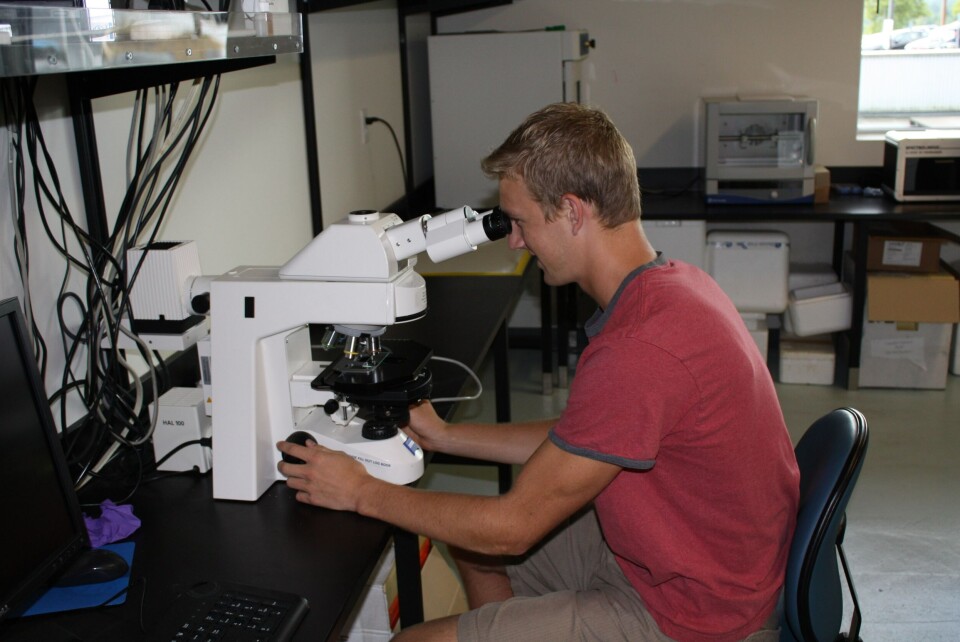
Canada leads world in fisheries research
Opinion
Just as anti-salmon farming activist Alexandra Morton is proclaiming to start a research project aimed at the sampling of wild salmon for pathogens that can potentially be linked to farmed salmon, Canadian government researchers are getting a vote of confidence from an expert panel. Ms. Morton’s scientific methods were last observed by the Campbell River on Vancouver Island, where she was joined by another extreme environmentalist- Don Staniford- in an attempt to find viruses from dead fish eviscerated on a bloody kitchen cutting board. Ms. Morton has repeatedly accused Canadian scientists of not doing a good enough job with respect to finding links between farmed and wild salmon pathogens.
But in a new report- The State of Science and Technology in Canada, 2012, Canadian fisheries scientists and others get a big sign of approval for their performance. The report is a result of a request made in 2010 by the Canadian Minister of Industry, who asked the Council of Canadian Academies to assess the state of science and technology in Canada;
The report builds upon, updates, and expands upon the Council’s inaugural report, published in 2006. This current assessment provides a thorough analysis of the scientific disciplines and technological applications where Canada excels in a global context. It also identifies Canada’s S&T strengths, regional specializations, and emerging research areas.
To complete this report, the Council assembled an 18-member expert panel from Canada and around the world to conduct this in-depth assessment. The Panel undertook an expansive analysis that included a penetrating look at the output and impact of Canadian publications and patents, a survey of over 5,000 top-cited international researchers, a survey of Canadian S&T experts, and an analysis of highly qualified and skilled personnel.
The Panel was asked to consider the full range of disciplines in which research is conducted, including the humanities, arts, and social sciences. After examining the available evidence, the Panel came to a number of key findings, listed below, and concluded that Canadian S&T is healthy and growing in both output and impact.
Key findings within the report include:
- In a survey of over 5,000 leading international scientists, Canada’s scientific research enterprise was ranked fourth highest in the world, after the United States, United Kingdom, and Germany.
- Canada is part of a network of international science and technology collaboration that includes the most scientifically advanced countries in the world. Canada is also attracting high-quality researchers from abroad, such that over the past decade there has been a net migration of researchers into the country.
- Ontario, Quebec, British Columbia, and Alberta are the powerhouses of Canadian S&T, together accounting for 97 per cent of total Canadian output in terms of research papers. These provinces also have the best performance in patent-related measures and the highest per capita numbers of doctoral students, accounting for more than 90 per cent of doctoral graduates in Canada in 2009.
Following the release of the report, the Canadian Department of Fisheries and Oceans issued the following statement last week, suggesting that “Canada Leads the World in Fisheries Research”;
The Honourable Keith Ashfield, Minister of Fisheries and Oceans, today issued the following statement: “It is an honour that Canada has been recognized as the world leader in fisheries research by top researchers around the world in the Council of Canadian Academies report: The State of Science and Technology in Canada, 2012. This report confirms what has been acknowledged by many – Canada’s fisheries science is the best in the world. “The Harper Government has made strategic investments in fisheries science and, as a result, the research output in the fisheries science field across the country is significant.
“The international scientific community continues to turn to Canada for our quality fisheries science.“Our government understands that science is crucial to the long-term sustainability of Canada's oceans and resources. I am proud of the excellent work of our scientists and our government will continue to invest where it counts to continue to achieve the best results for Canadians.”























































